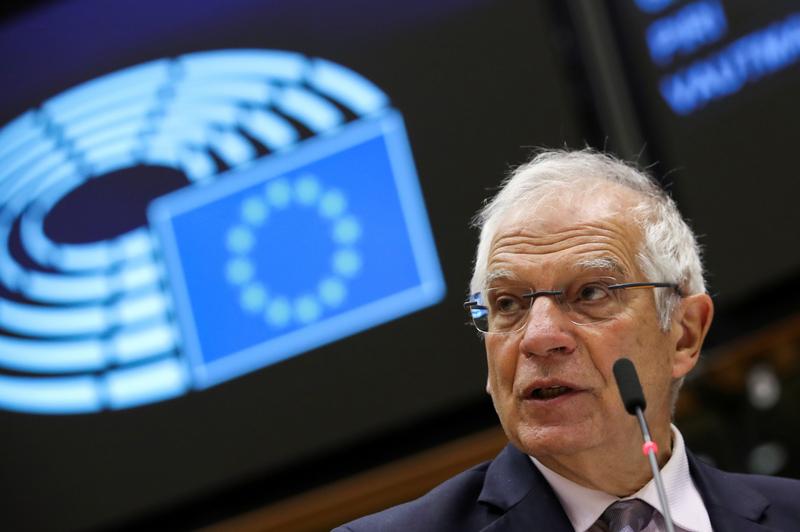The quicker the EU is fully involved in negotiations to solve the Cyprus problem the better, High Representative for Foreign Affairs and Security Policy Josep Borrell has said, it emerged on Sunday.
Responding to a letter by Chairman of the European Parliament’s Foreign Affairs Committee David McAllister, he welcomed the holding of a second informal 5+1 meeting, similar to that held in Geneva at the end of April, adding that the EU continues to support the United Nations in its efforts to find some common ground for another meeting.
“We are ready to offer any help that both the leaders in Cyprus and the UN would find useful,” Borrell said, “I have assured the UNSG for the EU’s and my preparedness to take part on a political level,” Borrell said in a letter dated June 1.
“The sooner the EU becomes fully involved in the Cyprus talks, the better. We have raised this with Turkey and the Turkish Cypriots,” he added.
EU officials attended the Geneva talks at the end of April.
Borrell also said he shares the view that the situation in Cyprus is unsustainable and he is increasingly concerned about both the prospects of Cyprus and the EU, and its impact on regional stability and prosperity in the Eastern Mediterranean.
“As the European Council has repeatedly reaffirmed, the EU remains fully committed to a comprehensive settlement of the Cyprus problem, in line with relevant UN Security Council resolutions and the EU acquis,” he added.
He said in repeated discussion with both President Nicos Anastasiades and Turkish Cypriot leader Ersin Tatar, he had underlined that a Cyprus solution must come from the Cypriots themselves.
“We know this is going to be a complicated process, but during my talks, I was encouraged by the readiness of both President Anastasiadis and Mr Tatar to work with the UN to find common ground on the way forward,” Borrell said.
For his part, McAllister said that “whatever one thinks about its realistic prospects, the situation in Cyprus is increasingly worrying from an EU perspective.
“The latest developments around hydrocarbons show that the Cyprus problems has the potential to destabilise the Eastern Mediterranean,” he added. “In addition, as is well known, from an economic point of view, the Cyprus problem hinders the development of a sustainable energy infrastructure in the region, which also affects the energy architecture of the Union itself.
“Unfortunately, recent developments in Turkey have further reduced the scope of any agreements. However, I am convinced that the EU must nevertheless seek solutions to the Cyprus problem that are compatible with the EU acquis, and therefore the earlier the EU gets involved the better,” he continued.







Click here to change your cookie preferences